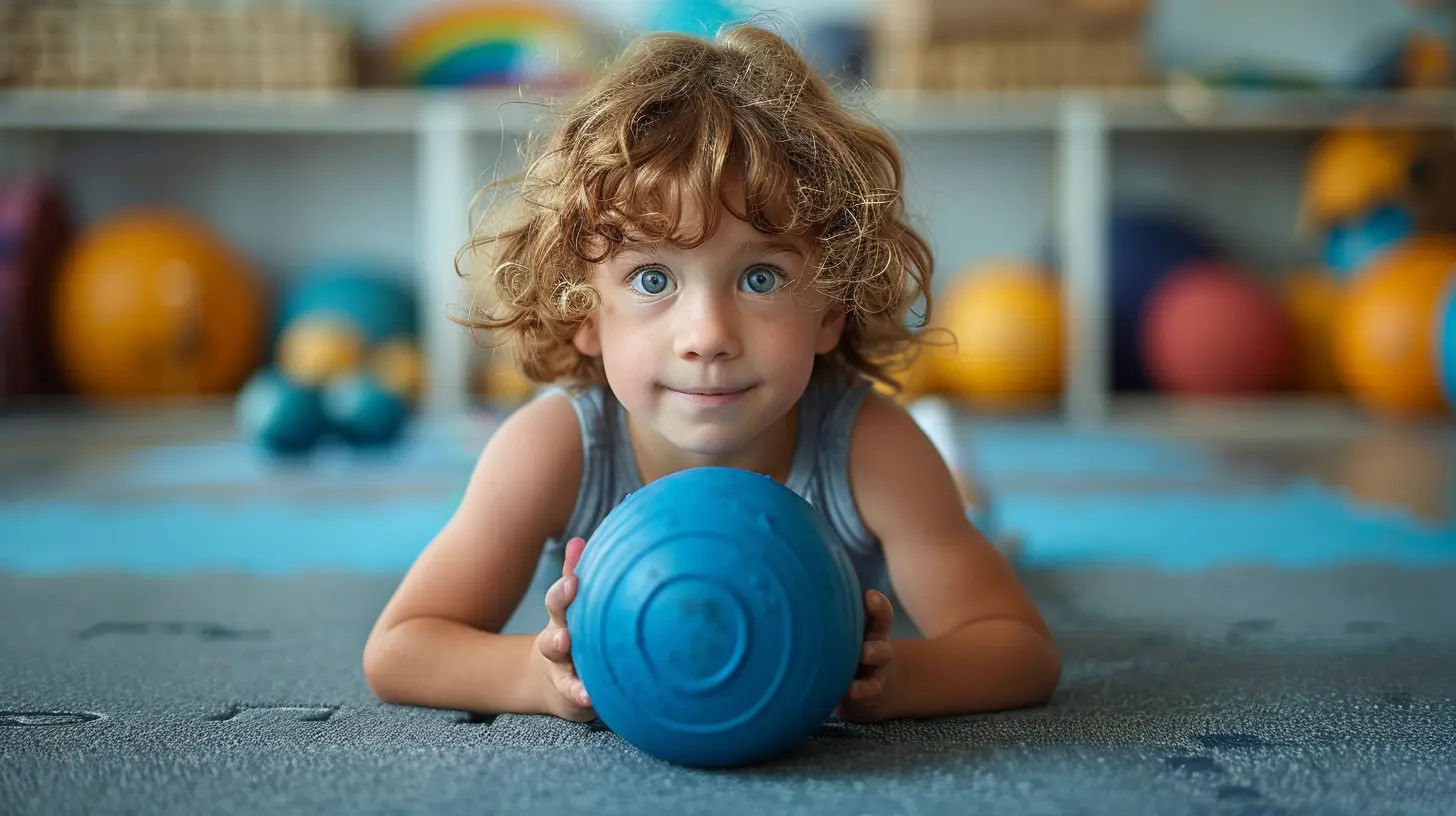The Connection Between Physical Activity and Cognitive Growth
28 August 2025
Let’s be real—when we think about working out, the first thing that pops into our minds is trimming the waistline, building muscle, or maybe just shaking off stress after a long day. But what if I told you that moving your body doesn’t just boost your physical health—it actually supercharges your brain too? Yep, that’s right. Physical activity and cognitive growth are more connected than we often realize.
Hold up... cognitive what? Cognitive growth is just a fancy way of talking about how our brain develops, learns, solves problems, remembers things, and makes decisions. So, imagine if you could think faster, remember more, and feel mentally sharper—all by lacing up your sneakers and getting your body moving. Sounds wild... but the science totally backs it up.
Stick around, because we’re about to dive deep into the fascinating link between physical activity and how our noodle (a.k.a. brain) stays in shape. Whether you're a gym rat or a couch connoisseur, this one’s for you.
What Is Cognitive Growth, Anyway?
Before we jump into the squat rack of science, let’s first clarify what we mean by "cognitive growth."Cognitive growth is your brain’s way of leveling up. It involves improvements in:
- Memory
- Focus and attention
- Problem-solving skills
- Language
- Reasoning and logic
It starts early (even before birth) and keeps evolving through childhood, adulthood, and into old age. Here’s the kicker—your environment, behavior, and even your physical activity can directly influence how well your brain grows and functions.
The Brain on Exercise: What’s Happening Upstairs?
Ever finish a jog and feel like your head just got a power-up? That’s not your imagination. Exercise literally changes the brain’s chemistry and structure.Here’s what’s going on behind the scenes when you’re moving your body:
1. 💉 Increased Blood Flow and Oxygen
When you exercise, your heart pumps faster, sending more blood—and with it, oxygen—to your brain. Think of it like watering a thirsty plant. That extra oxygen helps nourish those brain cells, keeping them happy and productive.2. 🧠 Neurogenesis: Growing New Brain Cells
Yep, your brain can grow new neurons—especially in the hippocampus, the part responsible for learning and memory. This process, called neurogenesis, gets a serious boost when you engage in regular aerobic exercises like running, biking, or swimming.3. 📦 Boost in Brain-Derived Neurotrophic Factor (BDNF)
BDNF is basically Miracle-Gro for your brain. It helps neurons grow, survive, and communicate better. Physical activity spikes your levels of BDNF, which means your brain gets smarter and more resilient.
The Mind-Body Connection: Why Moving Your Body Enhances Your Mind
Let’s break this down a bit more. Imagine your brain is like a high-performance car. Exercise is the oil change, tune-up, and engine cleaner all rolled into one.Here’s how movement impacts your cognitive abilities across different stages of life:
👶 Kids and Teens: Building Strong Mental Foundations
Do you remember a time in school when recess seemed like the best class of the day? Well, it wasn’t just fun and games—it was brain food.Research shows that kids who are physically active tend to:
- Score higher on standardized tests
- Have better attention spans
- Show improved behavior in class
- Develop stronger memory and learning skills
Why? Because play and movement help the developing brain strengthen neural pathways. It’s like laying down the best, fastest internet cables in your head.
👩💼 Adults: Staying Sharp in the Hustle
Adulting is hard—our brains are juggling a million tasks at once. And that mental fog from meetings, emails, and responsibilities? It’s real.Fortunately, regular physical activity acts like a reboot button. It helps you:
- Make quicker decisions
- Stay focused under pressure
- Improve multitasking
- Manage stress effectively (yay for fewer meltdowns!)
Even a brisk 30-minute walk can clear mental clutter and give you clarity. Think of it as taking your brain for a walk, too.
👵 Seniors: Protecting Cognitive Function into Old Age
As we age, brain shrinkage (yep, it’s a thing) becomes a real concern. But guess what? Physical activity slows it down big time.Studies have found that seniors who engage in regular movement:
- Lower their risk of Alzheimer’s and dementia
- Maintain better memory and thinking ability
- Have larger hippocampal volume (basically, their brain stays beefier)
It’s like exercise outfits your brain with armor against aging.
Different Types of Exercise and Their Brain Benefits
Not all movement is created equal, and different kinds of workouts affect the brain in various ways. Let’s break ‘em down:🏃♂️ Aerobic Exercise (Cardio)
This includes walking, running, dancing, swimming—anything that makes you breathe harder for a sustained period.Benefits:
- Promotes neurogenesis
- Increases blood flow
- Improves executive function (like planning and organizing)
🧘♀️ Mind-Body Exercises (Yoga, Tai Chi)
These combine physical movement with mental focus and mindfulness.Benefits:
- Reduces stress and cortisol levels
- Enhances emotional regulation
- Improves attention and focus
🏋️♀️ Strength Training
Pumping iron isn’t just for gains at the gym—it’s for gains in mental grit too.Benefits:
- Enhances memory
- Improves spatial awareness
- Increases self-confidence and mental alertness
🧠 Coordination-Based Activities (Martial Arts, Dance)
These challenge both the body and the brain, requiring timing, rhythm, and balance.Benefits:
- Boosts brain plasticity
- Sharpens reflexes and reaction time
- Enhances learning new patterns or sequences
Exercise and Mental Health: The Overlooked Superpower
Here’s where things get even more interesting.Physical activity doesn’t just make you smarter—it also makes you feel better emotionally. That emotional wellbeing feeds back into your cognitive performance. Win-win, right?
Regular exercise can:
- Reduce symptoms of depression and anxiety
- Improve mood and motivation
- Boost self-esteem
- Help regulate sleep (which is critical for brain function)
Have you ever noticed that after a good hike or a workout session, your worries seem a little lighter? That’s your brain thanking you.
How Much Exercise Do You Actually Need for Brain Gains?
So, how much do you have to move to enjoy all these benefits? Fortunately, you don’t need to turn into a triathlete overnight.Here’s a general guideline for most healthy adults:
- 150 minutes of moderate-intensity aerobic activity per week (like brisk walking)
- Strength training 2+ times per week
- Stretching and balance work a few times a week
Even small amounts of activity help. A 10-minute walk around the block can be enough to boost your mood and kickstart brain activity.
Quick Brain-Boosting Exercise Tips
- Try a “walking meeting” instead of sitting at the desk.- Park farther away from stores to sneak in steps.
- Do a short morning yoga routine to wake up your brain.
- Play active games with your kids (double win!)
- Dance in the living room like nobody's watching—because really, who cares?
Busting Common Myths About Exercise and Cognitive Health
Let’s cut through some of the noise you may have heard:> “You have to work out for hours to see any brain benefits.”
False. Even 20-30 minutes of movement several times a week can make a noticeable difference.
> “Older adults can’t grow new brain cells.”
Wrong. Neuroplasticity—the brain’s ability to adapt and grow—continues throughout life, especially with the right stimulus (like exercise).
> “Only cardio helps the brain.”
Nope. Strength training, flexibility, and coordination-focused exercises all support cognitive health in unique ways.
Final Thoughts: Your Brain Was Built to Move
We spend so much time trying to feed our brain knowledge—books, podcasts, documentaries, YouTube rabbit holes. But what many of us overlook is the fuel our brain needs in the form of movement.Physical activity is like a brain cheat code. It’s natural, it’s free, and it’s something almost everyone can do in some form. Whether you're jumping rope, doing push-ups, or going for a peaceful walk in the park, remember: every move you make is a step toward better mental performance.
So, the next time you're debating whether to hit the snooze button or go for a walk, think about your brain. Trust me—it’s rooting for the stroll.
all images in this post were generated using AI tools
Category:
Child DevelopmentAuthor:

Paulina Sanders
Discussion
rate this article
1 comments
Oriana Hill
Who knew that jogging could jog our brains too? It’s like our neurons are doing jumping jacks! Next time you’re stuck in a thought traffic jam, lace up those sneakers and take your gray matter for a walk. Cognitive growth: one step at a time!
October 13, 2025 at 4:38 AM

Paulina Sanders
Absolutely! Physical activity not only boosts our bodies but also energizes our minds. It's a powerful way to enhance cognitive function—one step at a time!


